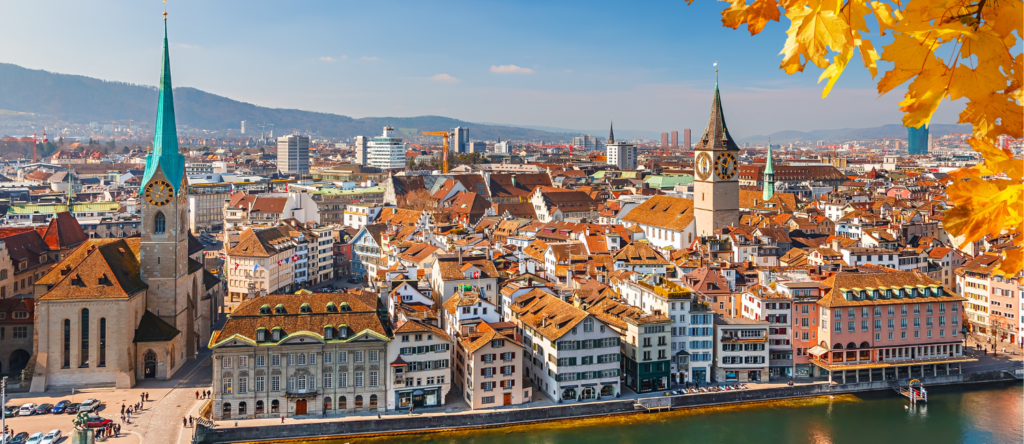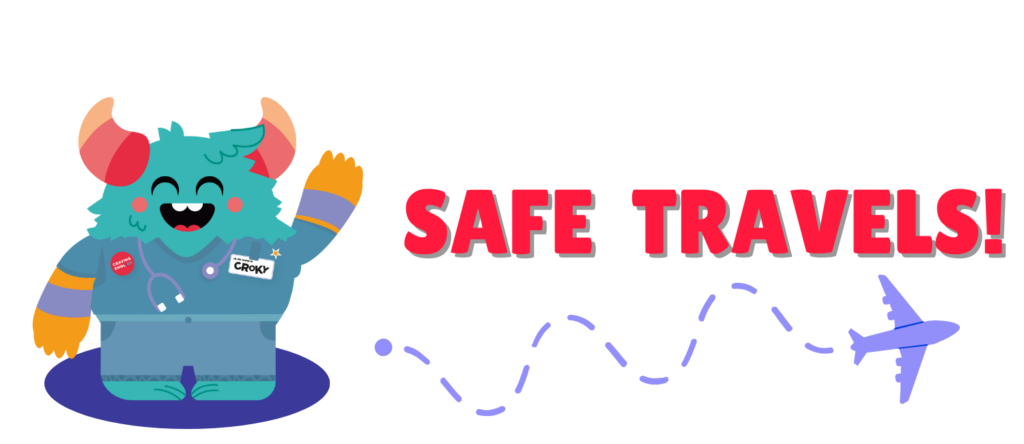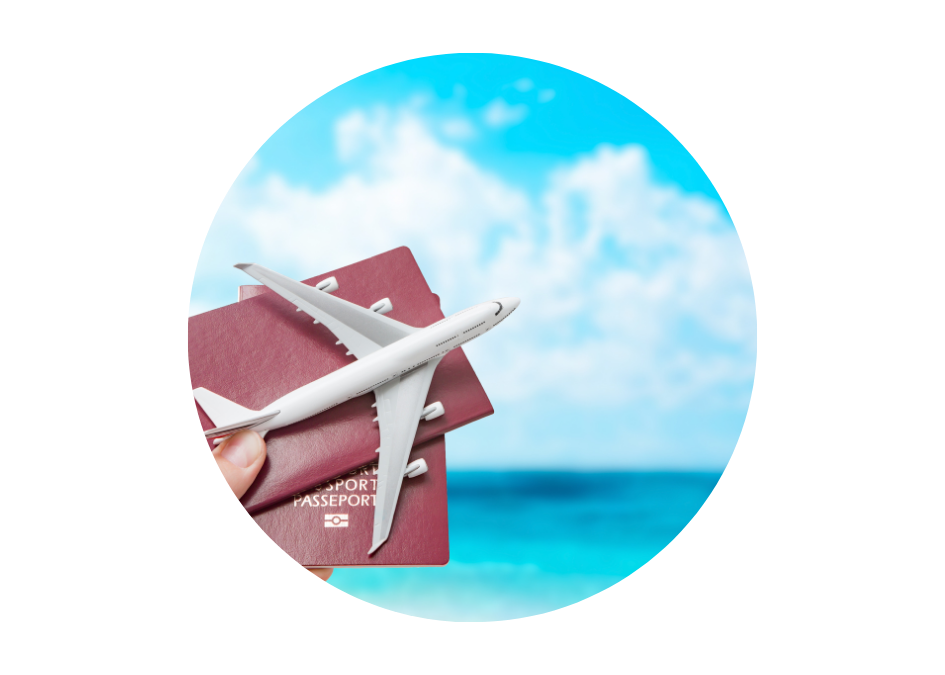As I now prepare to spend a month in Zurich, Switzerland, I wanted to share with you some of the things I am doing to prepare for this trip and embrace the language immersion! Traveling opens up a world of exciting experiences—new landscapes, foods, and people. But beyond the tourist attractions, one of the most rewarding aspects of travel is connecting with the locals. And language skills play a vital role in making that happen. While you don’t need to be fluent in every language of the countries you visit, even a basic knowledge of key phrases can significantly enhance your travel experience.
On my way to South Africa, I had the amazing opportunity to explore a little bit of Zurich during my layover. While I had an incredible time, I quickly realized how much of a difference knowing a few phrases in German would have made. From something as simple as being able to greet and thank people to ordering food in a cozy café, having a grasp of the local language opens doors to more meaningful interactions and a deeper connection to the culture.
That experience inspired me to take my language skills more seriously as I prepare for this upcoming trip. Here’s what I’m doing to get ready for a full month in Zurich, and how you can use language skills to enrich your own travels.
____________________________________________________________________________________________________________________________________

Castle in Bellinzona, Switzerland
1. Learn Basic Phrases Before You Go
One of the easiest ways to show respect to the people and culture of the place you’re visiting is by learning a few basic phrases. Even simple greetings like “hello,” “thank you,” and “goodbye” can go a long way in starting conversations and breaking the ice. Locals will appreciate your effort, even if your pronunciation isn’t perfect. (I know that mine won’t be 😅) It shows that you’re trying to engage with them in their language, and it often leads to warmer, more genuine interactions. Don’t forget that making mistakes is part of language immersion.
Tip: Create a cheat sheet with essential phrases. Apps like Duolingo or Google Translate can be great tools for learning and practicing on the go.
2. Use Technology to Your Advantage
We’re fortunate to live in a time where technology makes it easier than ever to communicate across language barriers. There are many apps that can help you translate speech, read signs, or even have simple conversations in real time. Google Translate’s camera feature, for example, allows you to translate text instantly by pointing your phone at menus, signs, or maps. Making sure you have access to tools like this one prior to heading out on your trip can greatly decrease any stress.
Tip: While technology is helpful, don’t rely on it for everything. Locals appreciate when travelers attempt to speak their language rather than always turning to an app.
3. Engage with Locals Beyond Tourist Areas
Traveling is much more than sightseeing. To truly immerse yourself in the culture, try stepping away from the typical tourist spots and explore local neighborhoods, markets, and cafes. When you strike up conversations, even with basic language skills, you’ll discover stories, traditions, and insights that you wouldn’t get otherwise.Tip: Don’t be afraid to make mistakes! People will generally be patient and delighted by your attempts to speak their language, even if you stumble a little.
4. Take a Language Class or Join a Language Exchange
If you’re staying in one place for a while, there’s no better way to immerse yourself in the local culture than by learning the language. At Craving English, we have helped many people accomplish their travel and moving abroad dreams. We offer personalized classes in languages like English and Spanish! Our lessons are tailored to your needs, helping you build conversational skills quickly, so you can confidently engage with locals wherever you go.
If you are looking for different languages or something in person you will find that many cities offer free or low-cost language exchanges where locals practice English and other languages, and in return, you can practice theirs.
When living in Miami I often went to Language exchange meetups where everyone would wear tags with their names and the languages they spoke! It was a fun way to meet people and learn a bit from different languages.
5. Immerse Yourself in the Local Media
A fun way to practice your language skills while traveling is by immersing yourself in the local media. Listen to local radio stations, watch TV shows, or read newspapers and magazines. Even if you don’t understand what they are saying, language immersion can help you get a feel for the rhythm and flow of the language, pick up new vocabulary, and improve your listening skills. Plus, it’s a great way to learn more about the culture, current events, and what matters to the locals.
My personal favorite is listening to local music. Music has a way of bringing people together and once you hear a song enough times, I promise, you will remember a lot of the vocabulary!
Tip: If you struggle with understanding spoken language, start with children’s shows or radio programs that are often slower and simpler in their language use. When I started learning English I read many kids books and worked my way up to chapter books.
6. Use Non-Verbal Communication
When words fail, remember that communication goes beyond just language. A friendly smile, gestures, and body language can help you get your point across when you’re stuck for words. Hand signals, pointing, or showing images on your phone can also come in handy when trying to communicate simple ideas like asking for directions or ordering food.Tip: Don’t underestimate the power of a smile! It’s a universal gesture that helps break down language barriers and makes interactions more pleasant.
7. Embrace the Learning Process
No matter how prepared you are, there will be times when you make mistakes or get confused. And that’s perfectly okay! Embrace the learning process, and don’t be too hard on yourself. Locals are usually understanding and appreciative of your efforts, even if your grammar isn’t perfect. Making mistakes is part of learning, and each interaction gives you a chance to improve.
Tip: Keep a small notebook to jot down new phrases, useful expressions, or words you hear throughout your travels. You can review these later to expand your vocabulary. I personally learn better by writing things down by hand but if you can’t keep a notebook with you, writing a few notes down on your phone works as well!
8. Use Language Immersion as a Cultural Window
Language is more than just a tool for communication—it’s a window into culture. By learning some of the local language, you gain insights into how people think, their humor, and their way of life. Phrases often carry cultural nuances that reveal a lot about a place and its people. For example, learning about food-related words or local idioms can give you a deeper appreciation of the culture’s customs and values.
Tip: Ask locals to teach you their favorite expressions or slang. Not only will this be fun, but it’s also a way to make meaningful connections.

Conclusion:
Traveling with some knowledge of the local language can transform your experience. It opens doors to deeper conversations, new friendships, and a greater understanding of the world around you. Whether you’re ordering coffee in a cozy café or asking for directions in a bustling market, using your language skills makes the journey even more rewarding. So, the next time you plan a trip, spend a little time practicing the language—you’ll be amazed at how language immersion enhances your adventure!

You can do it!
______________________________________________________________________________________________________________________________________

